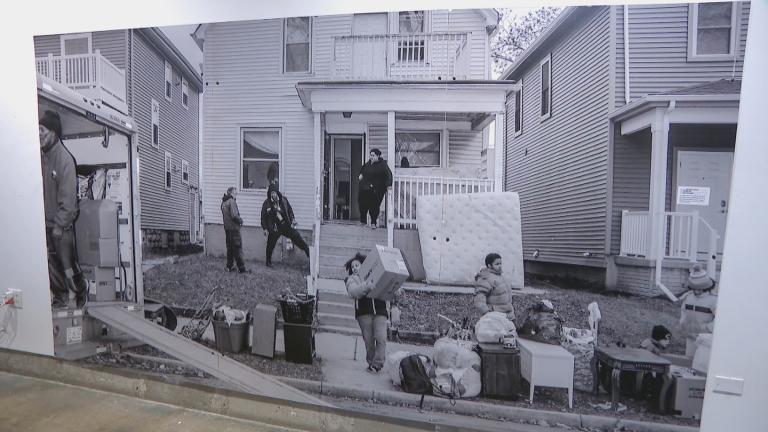Despite a lawsuit alleging he’s superseding his authority, Gov. J.B. Pritzker plans to go forward with a promise to extend through July a coronavirus-spurred prohibition on evictions.
“It’s important for us to stand up for people who are working class, people who cannot otherwise afford to maintain their home. We do not want people to become homeless in this difficult crisis,” the governor said Thursday when asked about the lawsuit.
A trio of landlords from Will and Winnebago counties filed the suit in Will County Circuit Court seeking to prevent the new ban from going into effect.
While recognizing that the COVID-19 pandemic has “turned the world upside-down” and as “well-intentioned” as Pritzker’s executive orders may have been, they have “had an unlawful and disproportionate impact on landlords, including Plaintiffs, to the point of jeopardizing their businesses and livelihoods,” the suit alleges.
It goes on to say: “protecting economically needy citizens such as tenants … is sound and proper policy. But compelled subsidization by landlords is an improper and unconstitutional method of solving that problem.”
Paul Arena, legislative director for the Illinois Rental Property Owners Association, said that while Pritzker may have had a compelling reason to ban evictions while the stay-at-home order was in effect, now that it’s lifted and the state is poised to enter phase four of its reopening plan, residents are relatively free to go about their business in public.
Arena said the rental industry has as a whole been understanding about tenants who may have a hard time making rent payments due to losing wages during the pandemic – his group has encouraged landlords to work with renters on payment plans, and he personally has waived any late fees.
But he said the coronavirus is not at the brunt of the evictions his members are trying to pursue; according to data collected by the National Multifamily Housing Council, more than 90% of apartment dwellers nationally were able to make all of part of their rent by June 20.
Arena said landlords have a right to access the court system – the only remedy available to them to protect their property in eviction cases.
“Lease violations that are unrelated to the virus, monetarily and then behavior stuff – people just moving in people they’re not supposed to, getting a dog they’re not supposed to, not taking out their garbage, any of the things that you would have went to court for, still are there.”
Housing advocates and Pritzker point to other figures that show profound housing insecurity, with at least a third of Illinois residents potentially unable to make their rent or mortgage payment.
Tenant organizer Michael Robin, with the Albany Park based Autonomous Tenants Union, called the landlords’ lawsuit shameful.
“It appears to be greedy and completely out of touch with the struggles of everyday Illinois residents,” Robin said. “We don’t think anyone should be evicted from their homes because they couldn’t pay a couple thousand dollars, but certainly not in the middle of a pandemic.”
He said going after families’ housing is an attack on Black and Brown residents who are disproportionally affected by COVID-19 and suffer from housing instability.
And while the stay-at-home order may have been lifted, he said a public health crisis remains.
“At the end of this (pandemic) we’re going to see an eviction crisis and we’re going to see a homelessness crisis with possible thousands of evictions executed,” he said. “When you have thousands facing homelessness, that’s a public health crisis and it’s not over.”
The Illinois Department of Employment Security on Thursday released data showing record-high unemployment rates for the month of May in each of the state’s metro areas.
Robin said property owners would be better off joining with his organizing as it fights for banks to give mortgage relief.
Both Chicago and Illinois are making funding available for low-income individuals who need financial assistance to help pay for housing; in the first round the city saw demand far outpace available funding.
Pritzker has said the extended eviction moratorium is meant as a bridge until the state program is up and running in August.
Meanwhile, housing advocates are calling for the Chicago City Council to pursue tenant protections and are trying to get Illinois to reverse statute that outlaws rent control.
The rental property owners’ lawsuit asks for an injunction to prevent Pritzker’s executive order from taking effect, and they seek speedy judicial action with a hearing as early as Friday.
Follow Amanda Vinicky on Twitter: @AmandaVinicky








